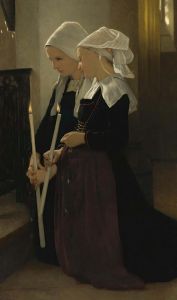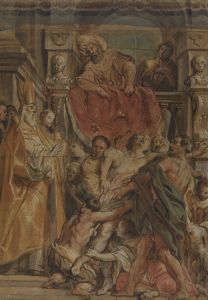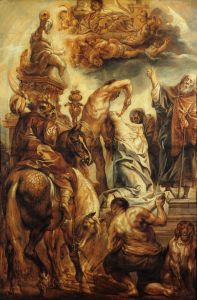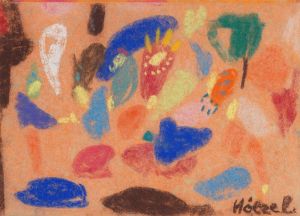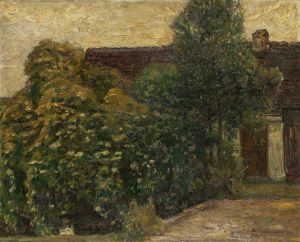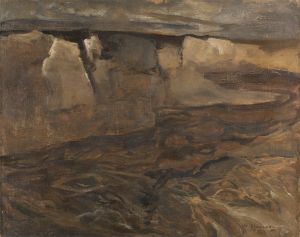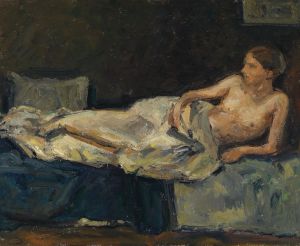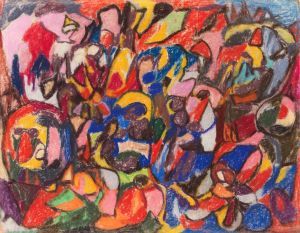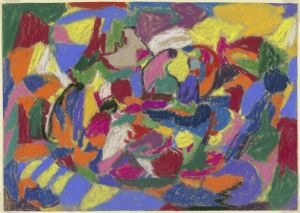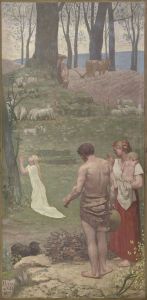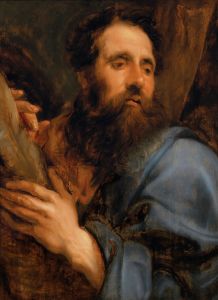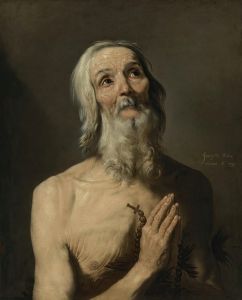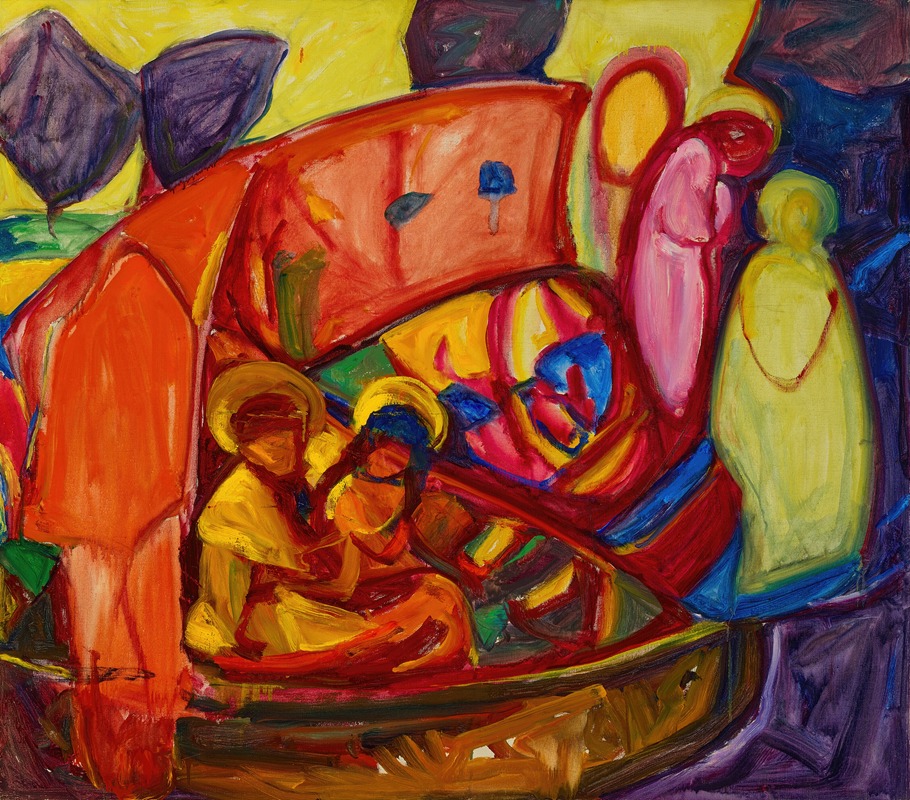
Komposition
A hand-painted replica of Adolf Hölzel’s masterpiece Komposition, meticulously crafted by professional artists to capture the true essence of the original. Each piece is created with museum-quality canvas and rare mineral pigments, carefully painted by experienced artists with delicate brushstrokes and rich, layered colors to perfectly recreate the texture of the original artwork. Unlike machine-printed reproductions, this hand-painted version brings the painting to life, infused with the artist’s emotions and skill in every stroke. Whether for personal collection or home decoration, it instantly elevates the artistic atmosphere of any space.
Adolf Hölzel (1853–1934) was a German painter, art theorist, and influential teacher associated with the development of abstract art in the early 20th century. His work, including the painting "Komposition," reflects his innovative approach to form, color, and abstraction, which played a significant role in the transition from representational art to modern abstract movements.
"Komposition" is one of Hölzel's abstract works, showcasing his exploration of non-representational forms and the interplay of color and structure. Hölzel was deeply interested in the theoretical aspects of art, particularly the relationships between colors and shapes. His artistic philosophy emphasized the autonomy of the artwork, where the composition itself—rather than any external subject matter—became the primary focus. This approach is evident in "Komposition," where the arrangement of shapes and colors creates a harmonious and dynamic visual experience.
Hölzel's career spanned a period of significant change in the art world, and he was a key figure in the development of modern art in Germany. He taught at the Academy of Fine Arts in Stuttgart, where he influenced a generation of artists, including Oskar Schlemmer, Johannes Itten, and Willi Baumeister, who would go on to play important roles in the Bauhaus and other modernist movements. Hölzel's emphasis on abstraction and his theoretical writings laid the groundwork for many of the ideas that would later be central to 20th-century art.
While specific details about the creation date or exact context of "Komposition" are not widely documented, the painting is representative of Hölzel's mature style, which often featured bold, geometric forms and a focus on the expressive potential of color. His work was informed by his belief in the spiritual and emotional power of art, a concept that aligned him with other pioneers of abstraction, such as Wassily Kandinsky.
Today, Adolf Hölzel is recognized as a pioneer of abstract art, and his contributions to art theory and education continue to be studied and appreciated. "Komposition" exemplifies his innovative approach and his commitment to pushing the boundaries of artistic expression. The painting remains an important example of the early development of abstract art in Europe.





